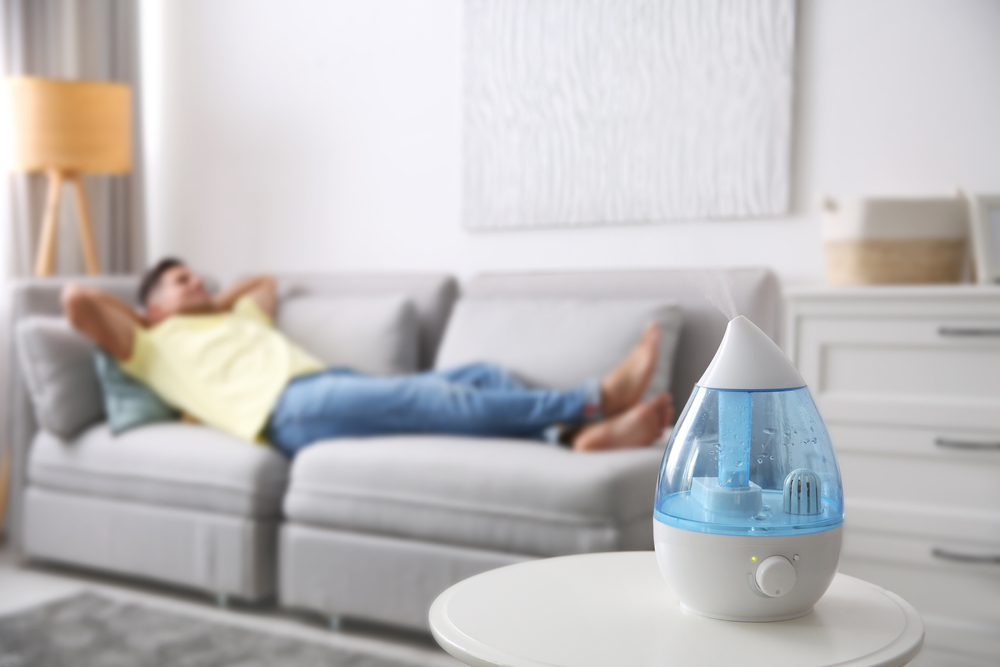While winter in most of California is not as extreme as in other parts of the country, it can still affect the quality and comfort of your vision. During the winter, the air is drier, and more time is spent indoors, which can lead to seasonal eye problems or worsen existing eye conditions.
Keep reading to learn 10 tips for winter eye care from your ophthalmologist.
1. Protect Your Eyes from the Elements

Because cold air has lower humidity levels, repeated gusts of wintery air can quickly dry out your eyes. If this happens, it can leave them watery, itchy, uncomfortable, and dry.
Even brief exposure to cold air, like the walk from your car to a store, can be enough to trigger symptoms. You can protect your eyes from the elements with smart winter accessories.
For the best protection outdoors, wear a hat with a brim or visor, scarves or neck warmers that reach your eyes, and glasses with clear or tinted lenses.
2. Keep Your Eyes Moist
Cold air outdoors is not the only thing that can make your eyes feel too dry in winter. Heated interiors can also have low levels of humidity, causing your eyes to feel sticky or overly tired.
Keeping your eyes moist with eye drops is the best way to keep them comfortable and practice optimal winter eye care. If you already use eye drops to soothe dry eyes, you may have to use them more frequently in winter.
3. Wear Protective Eyewear
While the sun may feel very far away during winter, the UV light it projects can still seriously harm your eyes. This can be doubly true if you are in a snow-covered environment, like a ski resort on vacation, where UV light reflects off the surface of the snowpack.
You can protect your eyes from UV light year-round by wearing high-quality sunglasses that block 99-to-100% of UV light. For even more protection, choose wraparound-style sunglasses, sunglasses with larger lenses, or models with polarized lenses to reduce glare.
4. Use a Humidifier

The ideal humidity in a home is between 40-to-60%. However, it can be challenging to maintain those levels in the winter.
Dry and cold air from heat sources and drafty doors and windows can significantly lower humidity levels. Setting up a humidifier is an easy way to combat eye-irritating dry air within your home.
The best places to have a humidifier are the rooms of your home where you and your family spend the most time: living rooms, home offices, and bedrooms.
5. Wash Your Hands More Often
Common cold and flu cases are not the only ailments care providers see more of in the winter. Because people typically spend more time inside in close contact with others, winter is often the season with the highest rates of viral eye infections, like conjunctivitis.
To protect not just the health of your eyes but your overall health, you should wash your hands more often during the winter. You can ensure your hands are clean by using an antibacterial soap, lathering and scrubbing your hands for at least 20 seconds, and thoroughly rinsing your hands under clean, running water.
6. Maintain a Healthy Diet
Studies show that what you eat is essential to keeping your eyes healthy. This is especially true during the winter months when you may need to consume more of certain foods to keep your eyes moist.
Foods that promote healthy eyes are rich in omega-3 fatty acids. These include fish, flaxseeds, and fruits and vegetables high in antioxidants, like carrots and leafy greens. You can further boost eye health by including nutritional supplements, like fish oil and vitamin E, in your daily routine.
7. Stay Hydrated
While staying hydrated is a good habit year-round, it can be imperative during winter. Dry winter air and low humidity levels can lead to severely dry eyes without proper hydration.
The amount of water you need daily for optimal eye moisture levels depends on the individual. Most healthcare providers recommend drinking at least eight glasses of water daily.
But factors like gender, weight, and activity levels can increase the amount of water a person should consume daily.
8. Practice Healthy Screen Habits
One of the leading causes of dry eyes today is the prolonged use of electronic screens. This condition can worsen in the winter due to seasonally drier, less humid interior environments.
Keeping your eyes moist while working or playing on an electronic screen this winter is easy if you follow the 20-20-20 rule. This rule is simple: look up from your screen every 20 minutes and focus on an object at least 20 feet away for at least 20 seconds.
9. Purify Your Air
Wintertime can be uncomfortable if your eyes are affected by common home allergens like pet dander or dust. With windows shut against the cold, air within your home is less likely to circulate, and allergens are more likely to build up, causing itchy, watery, irritated eyes.
Using an air purifier can reduce allergy symptoms by removing or reducing the presence of air-borne particulates. When used with a high-grade filter, an air purifier can eliminate approximately 99% of contaminants in your home’s air.
10. Limit Contact Lens Use

During the drier winter months, you may find it less comfortable to wear your contact lenses for prolonged periods. Contact lenses that are too dry irritate your eyes and can lead to serious eye problems, like infections or abrasions.
Instead of wearing your contact lenses, consider wearing your glasses more during winter. If you don’t like wearing your glasses out in public, removing your contact lenses and wearing your glasses when you are at home can be a good solution.
By following these winter eye care tips, you can help protect your eyes from the harsh winter elements and ensure they stay healthy and comfortable throughout the season. While some eye problems are seasonal, if you are experiencing persistent eye discomfort or vision problems, schedule an appointment with your ophthalmologist at Batra Vision Medical Group in San Leandro, CA, for an accurate diagnosis and effective treatment options!

 Follow Us!
Follow Us!